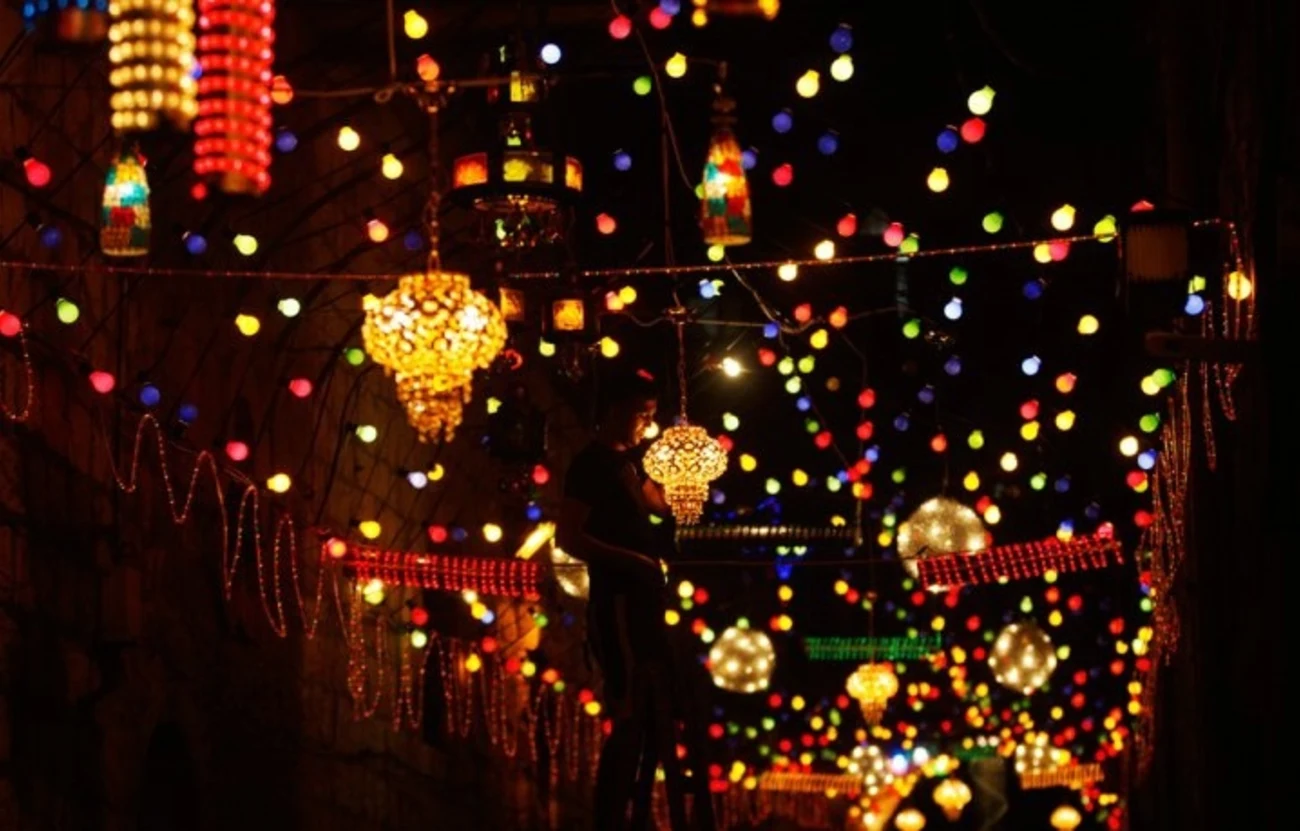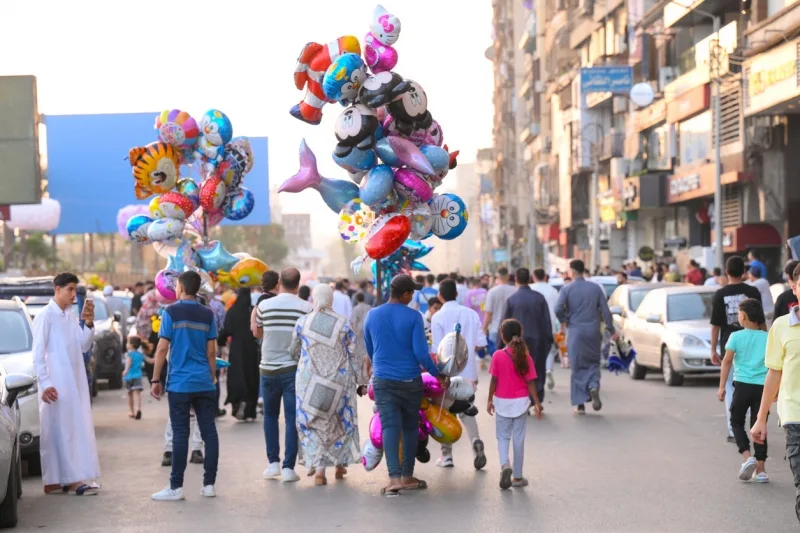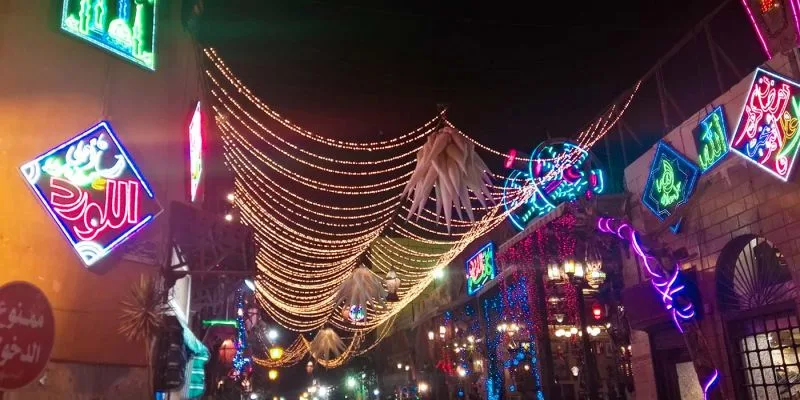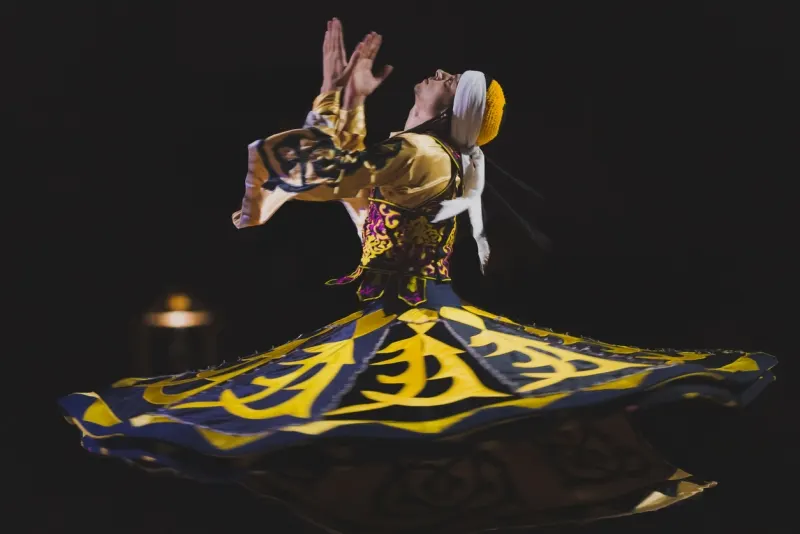Festivals in Egypt

Egyptian festivals combine religious and cultural traditions that date back thousands of years, reflecting the country’s identity and community values. Coptic Christians, about 10–15% of the population, celebrate holidays like Christmas using the Julian calendar, while nationwide events include Islamic celebrations such as Eid al-Adha, ancient rituals like the Abu Simbel Sun Festival, and modern gatherings such as the Sandbox Music Festival in El Gouna. These festivals highlight Egypt’s unique blend of history and modern life, offering visitors insight beyond its famous monuments.
Religious Festivals That Shape Egyptian Identity
Religious festivals in Egypt surpass simple celebrations. They serve as deep expressions of cultural identity and bring communities together. These sacred observances reveal the values and traditions that have shaped Egyptian society for thousands of years.
Coptic Orthodox Christmas and Easter
Coptic Orthodox Christians make up about 10-15% of Egypt's 104 million population. They celebrate Christmas on January 7th, following the Julian calendar instead of the Western Christian's Gregorian calendar. Devout Copts prepare with a 43-day fast and avoid animal products from sunrise to sunrise. Their Christmas Eve service starts around 8 PM and ends at midnight. Families then gather to enjoy special meals with meat dishes like fatta, where rice and bread soak in garlic and meat.
Easter holds deeper spiritual meaning to Coptic Egyptians. They observe a strict 55-day period called the Great Fast (al-Siyam al-Kabir). Holy Week begins with Palm Sunday (Hadd al-Za'f) and moves through Good Friday (al-Gum'a al-Hazina). The celebration ends with Easter Sunday ('Id al-Qiyama). Worshippers gather on Holy Saturday evening to break their fast after praying all day. Many take part in "resurrection plays" where lights show humanity's darkness before Christ and heaven's gates opening as he ascends.
Ramadan and Eid al-Adha
Egypt's Muslim majority changes its daily routine during Ramadan through dawn-to-sunset fasting. A cannon fires from the Citadel's top to mark iftar—the time to break fast. Streets come alive with bright fanous lanterns. Mesharati (drummers) walk through neighborhoods before dawn to wake people for their pre-dawn meal (sohour).
Eid al-Adha remembers Ibrahim's devotion to God through his readiness to sacrifice his son. This "Festival of Sacrifice" brings people together for communal prayers and ritual animal sacrifice. Families divide the meat into three parts—one for themselves, one for relatives and friends, and one for those in need.
These festivals do more than serve religious purposes. They strengthen social bonds and create a shared national identity. Egyptians from different backgrounds unite through these shared experiences. These traditions pass from one generation to the next, connecting people to Egypt's rich cultural heritage.

Cultural Celebrations Rooted in Ancient Traditions
Egyptian cultural celebrations keep ancient traditions alive through festivals that go back thousands of years. These events help people connect with their heritage beyond religious practices. They act as living museums and preserve customs that would otherwise only exist in history books.
Sham Ennessim: A Springtime Legacy
Sham Ennessim (meaning "smelling the breeze" in Arabic) remains one of Egypt's longest-running traditions. This 5,000-year-old celebration dates back to the Third Dynasty around 2700 BCE. The ancient Egyptians called it "Shemu," and it marked the start of harvest season. The festival survived changes from ancient Egyptian religion through Christianity and Islam. Now it stands as a unique secular holiday that brings together Egyptians of all faiths.
People celebrate on the Monday after Coptic Orthodox Easter. Families spend time outdoors having picnics by the Nile, in parks, or at the zoo to enjoy springtime. The traditional Sham Ennessim feast includes foods with meanings that trace back to Pharaonic times: fesikh (fermented salted gray mullet fish), colored eggs, green onions, and lettuce.
Each food item holds special meaning. Eggs symbolize new beginnings and renewal. Ancient Egyptians believed onions kept evil spirits away. Lettuce represented hope and fertility, while fesikh symbolized abundance. The ancient Egyptians would write their wishes on eggshells and hang them on trees. They believed the morning sun would help make these wishes come true.
Abu Simbel Sun Festival: Light and Legacy
The temple of Ramses II in Abu Simbel hosts a spectacular event twice a year, on February 22 and October 22. Thousands gather to watch ancient Egyptian astronomical expertise at work. Sunlight streams 60 meters into the temple's inner sanctuary at dawn. It lights up statues of Ramses II and the deities Amun-Re and Re-Hor-Akhty, while Ptah, the god of darkness, stays in shadow.
This solar alignment matches dates linked to farming and harvest seasons. Some experts think these dates might also celebrate Ramses II's birthday and coronation. Stories carved on the temple walls tell of the Battle of Kadesh and feature what many call the first peace treaty in human history.
This twice-yearly event draws visitors worldwide and turns into a lively cultural celebration. People enjoy traditional Nubian music, dancing, and festivities. The festival gives everyone a rare chance to experience ancient Egyptian spiritual practices firsthand. Modern celebrations connect directly to traditions that are over 3,000 years old.

Modern Festivals Reflecting a Changing Egypt
Egypt's festival scene has seen an incredible transformation that goes well beyond ancient traditions and religious observances. These changes mirror the country's social and cultural development.
Sandbox Music Festival and Youth Culture
Sandbox Festival, Egypt's premier boutique festival experience, turns El Gouna's Red Sea Riviera into a celebration of electronic music. This three-day event happens every May and showcases performances on five stages with DJs from around the world and the region. The festival emerged right after the 2011 revolution. At the time, millions of Egyptians got their first smartphones and 3G internet access surged. Young Egyptians took to social media platforms, which sparked new creative expressions.
The festival draws Egypt's young and trendy crowd. It creates a space for people under 29 - about 60% of Egypt's population - to experience modern culture. The festival has become a cultural milestone with tickets that start at $200.
Moulid un Nabi and Contemporary Observance
Mawlid al-Nabi, the celebration of Prophet Muhammad's birthday, shows how traditional festivals adapt to our times. The celebration's roots trace back to the Fatimid era (10th-12th centuries). People make distinctive sugar dolls called "arouset al-mawlid" and horse figurines.
These age-old traditions face modern challenges. Plastic versions now replace many traditional sugar figurines. Production costs keep rising and skilled artisans are becoming rare. In spite of that, Egyptians spent over 1 billion EGP on Mawlid sweets in 2020.
Today's celebrations mix Sufi traditions with festive elements. Street parades, sweet distributions, and poetry recitations take center stage. Modern changes haven't stopped many Egyptians from keeping these cultural traditions alive for future generations.

Customize Your Dream Vacation!
Get in touch with our local experts for an unforgettable journey.
Plan Your TripWhy These Festivals Matter Beyond Tourism
Egyptian festivals are more than just tourist attractions. These celebrations preserve national identity and social fabric across generations by acting as living repositories of culture, and many Egypt tours now highlight them as authentic cultural experiences.
Community, Belonging, and Shared Rituals
Egyptian festivals create powerful bonds of social cohesion. People experience shared joy when they immerse themselves in water during Eid el Ghettas, which bridges religious divides. Christian and Muslim children walk together in street processions. They hold oranges with candles and sing in unison—an experience that passes common heritage to future generations.
These rituals reach beyond religious boundaries. Ancient celebrations called "Heb" brought communities together to thank their gods. This structured Egypt's social rhythm and deepened people's spiritual beliefs. Heritage sites like Dendera and Abydos temples now draw nearly 15,000 people to singing concerts, showing that "people in Upper Egypt are thirsty for carnivals".
Festivals as a Window into Egyptian Values
Egyptian celebrations light up core cultural values through sharing and reciprocity. People of different faiths exchange traditional foods. Women and men share sugar cane, feteer (pastry), and kolqas with their neighbors. Muslim neighbors offer special Ramadan dishes that create natural opportunities to connect and talk.
These festivals let communities of all types build positive connections with seasonal changes and farming cycles. This stands in contrast to religious othering, as "social cohesion is forged not when people are blind to their differences but when these differences become the basis of genuine positive associations".
Egyptian celebrations ended up reflecting the country's rich identity that balances ancient traditions with Islamic customs and modern influences.
When you attend a festival in Egypt, you’re not just watching an event—you’re stepping into living history. Egyptian festivals are unique because they’re deeply rooted in community life and traditions that go back thousands of years. Whether you’re celebrating Sham Ennessim in Cairo, joining a moulid in Luxor, or experiencing a music festival on the Red Sea coast, these gatherings let you connect with Egyptians on a cultural and personal level. Unlike typical tourist attractions, festivals immerse you in authentic traditions, vibrant street parades, music, food, and rituals that reveal Egypt’s true identity.
Religious festivals like Ramadan, Eid al-Fitr, and Coptic Christmas play a huge role in Egyptian life. If you’re in Cairo during Ramadan, you’ll notice lanterns (fanoos) lighting up the streets, families gathering for iftar, and a spirit of generosity everywhere. These festivals strengthen social bonds, bring neighborhoods together, and unite Egyptians across different backgrounds. When you join in, even as a visitor, you get a glimpse of how religion and tradition are woven into Egypt’s national identity.
Yes—Sham Ennessim is one of the world’s oldest surviving traditions, dating back over 5,000 years to around 2700 BCE. Originally linked to ancient Egyptian fertility and harvest rituals, it’s now celebrated by Egyptians of all faiths. If you’re in Alexandria or Cairo during this spring festival, you’ll see families heading to parks and the Nile banks to picnic on traditional foods like salted fish (feseekh), green onions, and lettuce. This continuity across millennia makes Sham Ennessim an extraordinary cultural bridge between ancient and modern Egypt.
Egypt’s festivals are constantly evolving. Today, alongside traditional celebrations like Moulid al-Nabi (the Prophet’s Birthday), you’ll also find modern events that reflect youth culture, like the Sandbox Music Festival in El Gouna on the Red Sea. These newer festivals showcase electronic music, art, and contemporary Egyptian creativity, while still keeping a sense of cultural connection. Whether you’re dancing at a beach festival in Hurghada or attending a traditional moulid in Upper Egypt, you’ll see how Egypt blends old traditions with modern expression.
Egyptian festivals aren’t staged for tourism—they’re essential to Egypt’s cultural and social fabric. They preserve traditions, strengthen community ties, and keep Egypt’s identity alive in the face of modernization. When you experience a festival in Egypt, you’re not just sightseeing—you’re joining a celebration of resilience, joy, and heritage. Whether it’s the spiritual atmosphere of Ramadan in Cairo, the historic roots of Sham Ennessim, or the artistic energy of Alexandria’s film and music festivals, these celebrations give you an authentic window into Egyptian life that no museum or monument can match.










